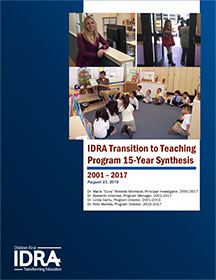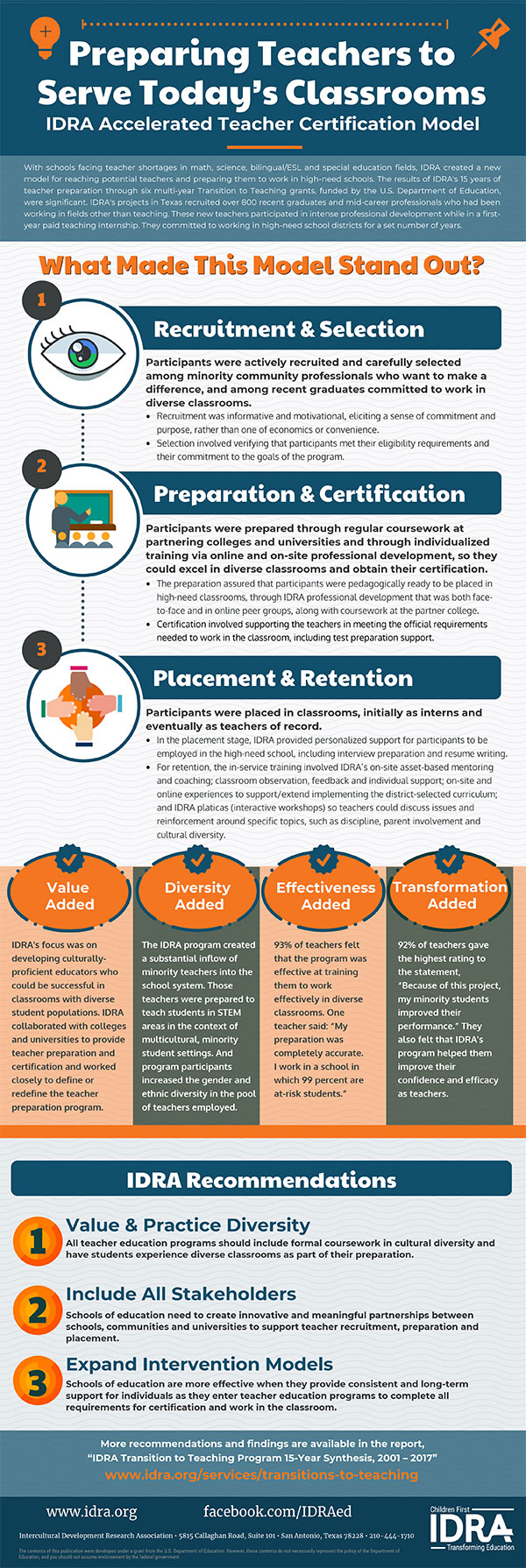Report Provides 15-Year Synthesis of IDRA’s “Transition to Teaching” Program


The projects recruited over 800 recent graduates and mid-career professionals who were working in fields other than teaching. These new teachers participated in university coursework and intense professional development while in a first-year paid teaching internship. They committed to working in high-need school districts for a set number of years.
“What set these projects apart from other accelerated teacher certification models was our emphasis on preparing teachers to work in diverse school settings, recognizing and building on their students’ academic, cultural and linguistic strengths,” said Dr. María “Cuca” Robledo Montecel, IDRA President & CEO. “We also ensured participants had university instruction and direct classroom experience, blending the theoretical with the practical.”


IDRA’s model comprises six elements that frame the program’s sequential processes: recruitment, selection, preparation, certification, placement and retention.
See the Infographic – Preparing Teachers to Serve Today’s Classrooms
Regarding the program impact, teachers gave the highest rating (92 percent) to the statement, “Because of this project, my minority students improved their performance.”
More than 85 percent of teachers felt that the program met and exceeded their expectations. As one teacher described: “It was a great experience that allowed me to learn from people with many types of perspectives. I was given confidence to try, and if I made a mistake, I learned and gave it another try through another approach.”
Another teacher stated: “My preparation was completely accurate. I work in a school in which 99 percent are at-risk students.”
The new report outlines lessons learned, best practices and implications for future quality teaching efforts in line with IDRA’s recommendations: (1) value and practice diversity, (2) include all stakeholders, and (3) expand intervention models.


